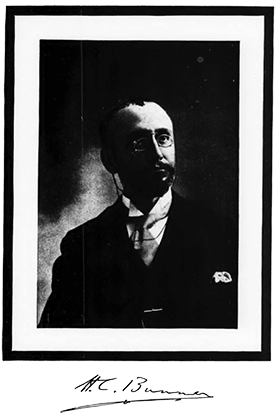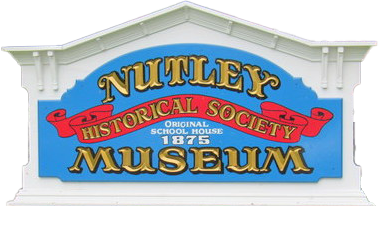
May the light of some morning skies
In days when the sun knew how to rise,
Stay with my spirit until I go
To be the boy that I used to know.
From “ROWEN.”
THE DEATH OF HENRY CUYLER BUNNER at the age of forty-one is a heartless tragedy. The hope and the ardor of life were his by right through a long future, and that future held in trust for him great riches of the kind he prized.
Like the late Joseph Keppler, he devoted to this paper his best years and the full measure of his many-sided genius. The founding of PUCK in 1877 was the first notable stand in a struggle that had been going on in this country for more than half a century, to establish a humorous periodical of caricature. To make this stand an unquestioned victory, the pencil of a Keppler was first required; and next, the pen of a satirist, humorist and poet. And this more he had to be: one native to the soil, knowing the virtues and failings of our people, and in sympathetic accord with their quick, vigorous young life. Bunner’s intense, intelligent Americanism, no less than his rare literary gifts and fine culture, fitted him to join effectively with Keppler in the building-up of this paper.
Few as were his years, his life was successful beyond most, for it was spent in unfaltering devotion to his best ideals. To the day of his breaking-down he showed the same proud love for his craft that held him to it at twenty-five. He had, to an unusual degree, the singleness of purpose and inveterate earnestness, for the lack of which so many good artists are dulled into artisans by years of routine.
To his editorial writing he brought a keen, practical sagacity, a sense of humor always alert yet never obtrusive, and a literary finish rare in journalism. He had, too, a graceful flexibility in argument that compelled the quick good-will of his readers. Toward pretenders of any degree in politics, religion or social life his satire was merciless; but with those in honest error he was wisely considerate, and ready to reason them into the right, as he saw it, with tact and patience.
A truly catholic love and understanding of his kind made him a tender poet and a rare teller of tales. In this work he is invariably sane and wholesome and humanizing, — which are valuable qualities in a day when so many fiction-writers run after strange gods. He believed with all his heart in the Story, and he was ever active in defending it against literary heretics and vandals. He had little patience with the professed realism that concerns itself with recording dry trivialities; and he was unaffectedly intolerant of fiction with a ‘‘purpose.” He believed that a fairy-story might be told with as much verity as the multiplication table; and to work a moral into a tale, he contended, was not only to pervert a beautiful artistic form, but to take a mean advantage of the reader. And so, loving his art too well to make it serve any creed or theory, he has given us graceful, natural stories of men and women, — stories that sway our emotions powerfully by showing us our own familiar virtues and weaknesses.
Like Stevenson, Bunner had that wondrous human sympathy that goes straight to the hearts of men and women and makes them know him for their close kin. No one knew better than he that perfection is not of this world; and he was never shocked or discouraged, as so many moralists are, when he found some new proof that man is only human. Yet he was the reverse of cynical. He was just, kind and clear-seeing, and cheerfully hopeful for mankind in spite of its failings, And with all his human qualities he was a literary artist of such exquisite taste and unerring skill that his slightest production is a delight.
American literature has lost a man it could hardly spare, — one who stood for earnest effort always, and one whose works and reputation have a solid base of merit. As for his readers, there must be many that count his death as the loss of a well-loved friend and intimate.
To those who knew his simple, genuine ways, his fine courtesy, his staunch manhood; who have had his fast friendship and good-fellowship, and who have worked side by side with him for nearly a score of years, the sorrow of his going is more than may be told.
